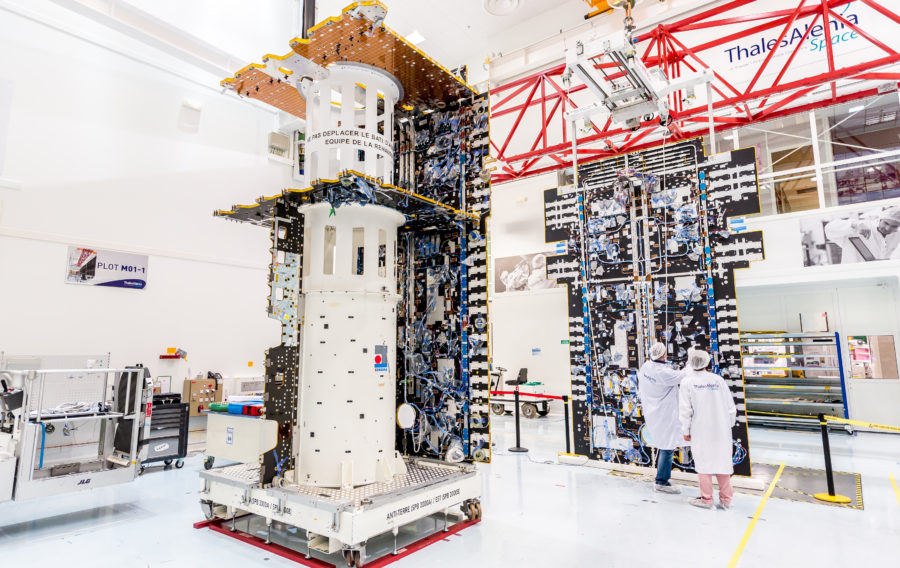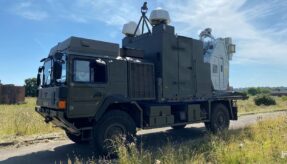
Inmarsat, the world’s leading provider of global mobile satellite communications, has announced that construction and associated sub-system tests of the satellite for its market-changing European Aviation Network (EAN) in-flight connectivity solution has been completed on schedule by Thales Alenia Space.
The key milestone was achieved following an extensive two-year build process in Toulouse and Cannes, France. The completed S-band payload module was shipped in early July to Thales Alenia Space’s testing centre in Cannes, where satellite integration (‘mating’) was also successfully completed. The satellite is now undergoing rigorous system end-to-end testing before it is declared ready for flight in 2017.
The satellite has been custom-designed to provide mobile satellite services (MSS) to aircraft flying over the dense European routes, exploiting Inmarsat’s 30MHz S-band spectrum allocation in all 28 EU Member States, as well as Norway and Switzerland.
It will be integrated with an LTE-based ground network covering approximately 300 sites, operated by Inmarsat’s partner Deutsche Telekom. Aircraft will switch automatically between satellite and terrestrial connectivity using an on-board network communicator for optimal service delivery.
Picture Caption: Thales Alenia Space assembles the communication module of Inmarsat’s European Aviation Network satellite
If you would like to join our community and read more articles like this then please click here
Alenia European European Aviation Network Inmarsat satellite Thales








